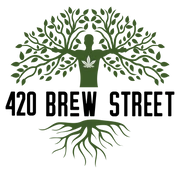Hemp Business Journal Useful Terms + Definitions
Cannabidiol (CBD) – one of at least 113 cannabinoids identified in Cannabis sativa L (“Cannabis”) which includes marijuana and hemp varieties. It is a major phytocannabinoid and does not have intoxicating effects like those caused by tetrahydrocannabinol (THC).
CBD Isolate – CBD in its purest form. To produce CBD isolate, hemp or marijuana is refined to stripe out any additional cannabinoids, terpenes or plant components. With CBD isolate, a patient or consumer will receive the sole benefits of CBD. In comparison, full-spectrum oil (FSO) provide the synergistic benefits (see “Entourage Effect”) of the whole marijuana or hemp plant. Other cannabinoids and constituents of marijuana and hemp can be isolated including cannabinoids (e.g., cannbigerol (CBG)) and terpenes (e.g., myrcene).
Controlled Substances Act (CSA) – Title II of the Comprehensive Drug Abuse Prevention and Control Act of 1970. It is the federal US drug policy under which the manufacture, importation, possession, use and distribution of certain narcotics, stimulants, depressants, hallucinogens, anabolic steroids, and other chemicals is regulated.
Drug Enforcement Agency (DEA) – The Drug Enforcement Administration is a United States federal law enforcement agency under the United States Department of Justice, tasked with combating drug smuggling and use within the United States.
Dietary Supplement Health and Education Act of 1994 (DSHEA) – US federal statute which defines and regulates dietary supplements. Under the act, supplements are effectively regulated by the FDA for Good Manufacturing Practices under 21 CFR Part 111.
Entourage Effect – The term for a concept and proposed mechanism by which compounds present in cannabis modulate the overall effects of the plant (these resulting principally from the action of the main psychoactive component of cannabis, tetrahydrocannabinol (THC)). Cannabidiol (CBD) is believed to be the major modulatory component of cannabis, mitigating some of the negative, psychoactive effects of THC. The term will often be used in connection with explaining the effect of a Whole Plant or Full Spectrum extract or oil.
Epidiolex – Epidiolex is GW Pharmaceutical’s drug that was recently approved by the FDA. It is a proprietary oral solution of marijuana-derived CBD. Epidiolex is concentrated on severe, orphan, early-onset, treatment-resitant epilepsy syndromes.
Full-Spectrum CBD Oil (FSO) – Wholesale CBD product sometimes referred to as “whole-plant extract.” FSO contains a variety of essential vitamins, minerals, fatty acids, protein, chlorophyll, terpenes, flavonoids, and fiber. Hemp and marijuana plants may contain a large number of cannabinoids (in trace amounts) but the main compounds present are CBD and cannabidiolic acid (CBDa). FSO is used to make a variety of consumer products.
Farm Bill (2018) – The Farm Bill is the primary agricultural and food policy tool of the US federal government. The comprehensive omnibus bill is renewed every 5 years (approximately) and deals with both agriculture and all other affairs under the purview of the United States Department of Agriculture (USGA).
Food and Drug Administration (FDA) – A federal agency of the United States Department of Health and Human Services, one of the United States federal executive departments. The FDA is responsible for protecting and promoting public health through the control and supervision of food safety, tobacco products, dietary supplements, prescription and over-the-counter pharmaceutical drugs (medications), vaccines, biopharmaceuticals, blood transfusions, medical devices, electromagnetic radiation emitting devices (ERED), cosmetics, and animal foods & feed, and veterinary products.
Food, Drug, Mass & Club (FDMC) – Sales channel that includes Walmart, Target, Kroger, Walgreens, CVS, Costco, and more.
Good Manufacturing Practices (GMP) – GMP refers to the Good Manufacturing Practice Regulations promulgated by the US Food and Drug Administration under the authority of the Federal Food, Drug, and Cosmetic Act. These regulations, which have the force of law, require that manufacturers, processors, and packagers of drugs, medical devices, some food, and blood take proactive steps to ensure that their products are safe, pure, and effective. GMP regulations require a quality approach to manufacturing, enabling companies to minimize or eliminate instances of contamination and errors. This in turn, protects the consumer from purchasing a product which is not effective or even dangerous. Failure of firms to comply with GMP regulations can result in very serious consequences including recall, seizure, fines, and, in extreme cases, jail time.
Hemp-Derived CBD – CBD derived from the hemp plant, whereby hemp is a plant of the genus Cannabis and any part of the plant, whether growing or not, containing a delta-9 tetrahydrocannabinol (THC) concentration of no more than three-tenths of one percent (0.3%) on a dry weight basis. In the United States, industrial hemp cultivation must be done in accordance of Sec. 7606 of the 2014 Farm Bill.
House Bill 18-1187 – A Colorado bill concerning the lawful use of a prescription drug (i.e. Epidiolex) that contains CBD that is approved by the United States food and drug administration. The Bill, that was signed by Governor John Hickenlooper on June 4, 2018, included language to protect marijuana and hemp companies, saying specifically, “the general assembly does not intend for this legislation to be construed so as to prohibit, preclude, or otherwise affect previously authorized activities concerning products derived from marijuana, industrial hemp, or other lawful sources which contain cannabinoids but which are not a prescription medicine approved by the United States food and drug administration.”
Investigational New Drug (IND) – An application that is the first step in the drug review process by the US Food and Drug Administration (FDA). The application is submitted by the company responsible for developing the drug (the sponsor) to the FDA.
Licensed Producers (LPS) – Companies issued a license by Health Canada under the Access to Cannabis for Medical Purposes Regulations (ACMPR). Only producers who are authorized to produce and sell to the public may sell or provide dried marijuana, fresh marijuana, cannabis oil, or starting materials to eligible persons.
Marijuana-Derived CBD – For the purposes of this report, the term marijuana is used (not “cannabis”) since marijuana is still the legal term that explains how and where Cannabis sativa L is licensed, cultivated and sold through the Dispensary Channel. To call it cannabis-derived CBD, is to conflate legal terminology given marijuana and hemp are both technically Cannabis sativa L. As such, marijuana-derived CBD is Cannabis sativa L grown under a state marijuana license and sold through a licensed dispensary (medical or adult-use) where the plant usually contains delta-9 tetrahydrocannabinol (THC), but not always, as is the case with “No THC” plants grown under a marijuana license (not a hemp license) but sold through a dispensary. The licensing and legal terminology drive our definitions. As laws change and public education increases, HBJ may change marijuana-derived CBD to cannabis-derived CBD.
Natural Products Industry (NPI) – The name for the $100+ billion US industry spanning the manufacturing, distribution, and sales of natural and organic products, including food, supplements and ingredients.
New Drug Application (NDA) – The vehicle through which drug sponsors formally propose that the FDA approve a new pharmaceutical for sale marketing in the US.
New Drug Code 7350 – The newly created DEA Administration Controlled Substances Code Number for “Marihuana Extract.” According to the DEA, extracts of marijuana will continue to be treated as Schedule I controlled substances.
Prescription Drug User Fee Act (PDUFA) – Law that created a program that authorizes the FDA to collect fees from companies that produce certain human drug and biological products. Since the passage of PDUFA, user fees have played an important role in expediting the drug approval process. As of 2017, 3/4th of the FDA budget (approximately $700 million) is funded by pharmaceutical companies due to the Prescription Drug User Fee Act.
Psychotoxic Verses Pyschoactive – In pharmacology, psychotoxic is the effect when a drug interferes seriously with normal behavior. In pharmacology, a psychoactive drug, psychopharmaceutical, or psychotropic is a chemical substance that changes brain function and results in alterations in perception, mood, consciousness, cognition, or behavior.
Pharmaceutical CBD – The industry category to describe drugs containing CBD. Although a pharmaceutical may be plant-based and derived from cannabis, if it is a drug, then HBJ classifies it as Pharmaceutical CBD which implies a drug pipeline consisting of clinical trials, IND, NDA, PDUFA, and FDA approval before going to market. This process is very different across legal, research, distribution, sales, and economic factors.
Practitioner Channel – The Natural Products Industry sales channel to describe healthcare practitioners which includes Medical Doctors (MDs), Doctors of Osteopathic Medicine (DOs), Naturopathic Doctors (NDs), Doctors of Chiropractic (DCs), and Doctors of Veterinary Medicine (DVMs).
THC-Free CBD Distillate – Wholesale CBD product sometimes referred to in the hemp industry as “the honey” for its honey-like appearance and color. THC-free CBD distillate is created by using SMB chromatography to refine already extracted hemp and marijuana material (concentrate oil) – by separating and concentrating three distinct fractions: cannabinoids, the lighter volatiles (terpenoids and flavonoids) and the non-volatiles – the heavier, unwanted materials (pesticides). THC-free CBD distillate is the most concentrated and purified form of CBD oil, and as such commands a higher wholesale price than CBD FSO or CBD isolate.


